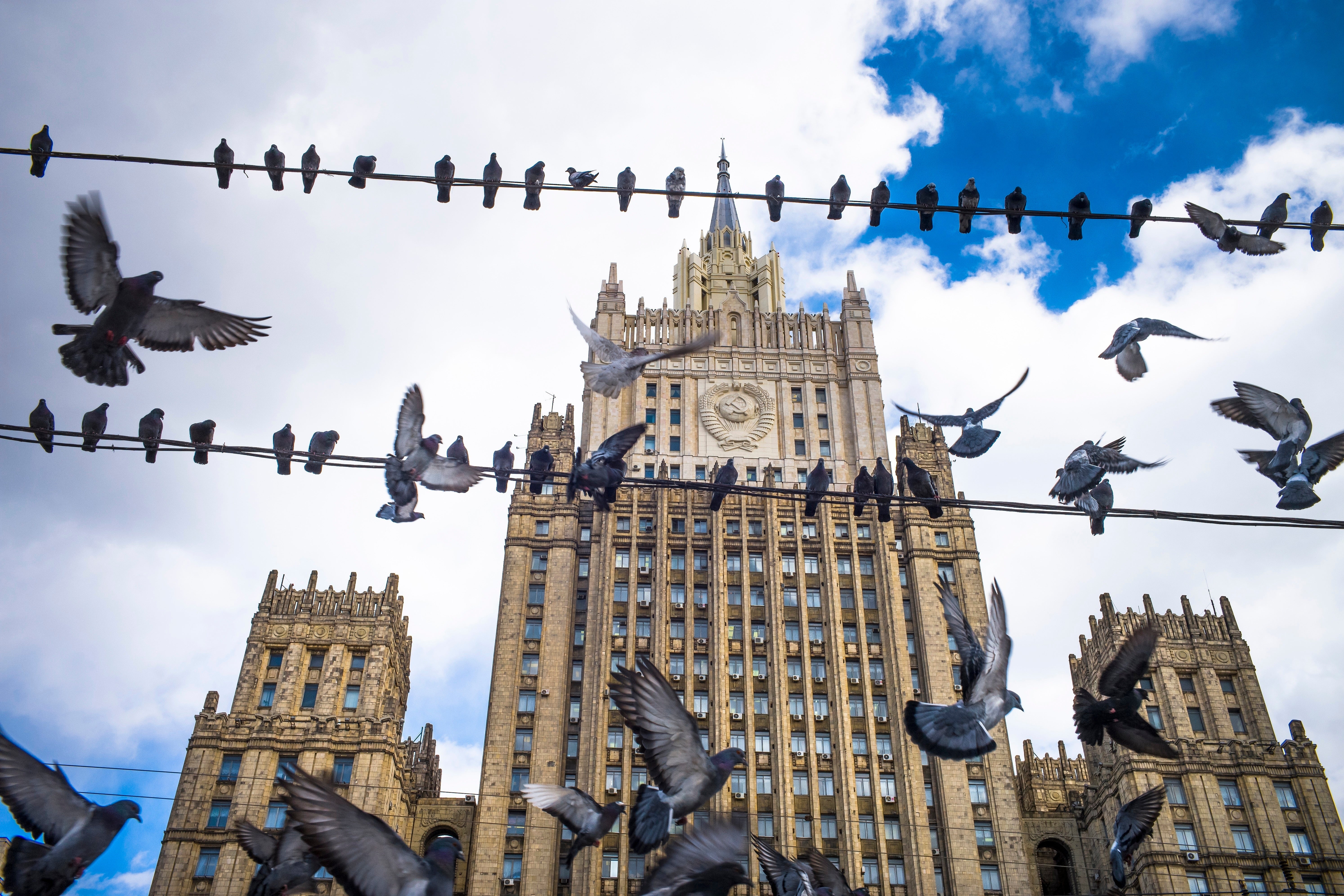Moscow hosts talks aimed at Syria-Turkey rapprochement
Senior diplomats from Russia, Turkey, Syria and Iran have wrapped up two days of talks in Moscow

Senior diplomats from Russia, Turkey, Syria and Iran wrapped up two days of talks in Moscow on Tuesday, part of the Kremlin's efforts to help broker a rapprochement between the Turkish and Syrian governments.
The Russian and Turkish foreign ministries issued terse readouts, saying diplomats discussed preparations for a planned meeting of the four countries' foreign ministers. Moscow described the consultations as “frank and direct,” and Ankara said they were held in a “transparent and clear manner,” while offering no details.
The talks in Moscow were held as U.N.-mediated negotiations aimed at reaching a political solution to Syria's conflict have stalled.
Russia has waged a military campaign in Syria since September 2015, teaming up with Iran to allow Syrian President Bashar Assad's government to fight armed opposition groups and reclaim control over most of the country. While the bulk of the Russian military has been busy fighting in Ukraine, Moscow has maintained its military foothold in Syria and kept warplanes and troops at its bases there.
The Kremlin has also made persistent efforts to help Syria rebuild fractured ties with other countries in the region, including neighboring Turkey, which has backed armed opposition to Assad throughout the 12-year conflict. In December, Moscow hosted a surprise meeting of the Turkish and Syrian defense ministers, the first such encounter since Syria's uprising-turned-civil-war began in 2011.
Greeting the participants of the four-way talks on Tuesday, Lavrov urged Syrian and Turkish diplomats to show “flexibility and constructive attitude,” and abandon the “confrontational rhetoric and past offenses.” He added that the process of normalization will take time, emphasizing the importance to “find for common ground to reach a balance of interests and avoid preconditions” and promising that Moscow and Tehran will help create conditions for further talks.
Ayman Sousan, Syria's deputy foreign minister who attended the talks in Moscow, thanked Russia and Iran for their help in “confronting terrorism” in remarks carried by the state news agency SANA. Sousan blasted other countries that “took advantage of the situation created by this war to illegally send their forces to Syria” and supported “terrorist groups.”
Turkey has backed armed opposition groups in Syria that have sought to overthrow Assad’s government during the civil war, which has killed nearly 500,000 people and displaced half of the country’s prewar population. Turkey has de facto control over large swathes of northwestern Syria, and Sousan emphasized that the withdrawal of Turkish forces from Syrian territory is a prerequisite for a normalization of ties.
But even as Turkey has supported Syrian opposition fighters in the north, Ankara and Damascus are equally dismayed over the U.S.-backed, Kurdish-led Syrian Democratic Forces in Syria’s northeast. Turkey-backed opposition fighters have clashed with the SDF in the past, accusing them of being an arm of Turkey’s outlawed Kurdistan Workers’ Party, or PKK. The PKK has for decades waged an insurgency within Turkey.
Assad’s government has cast the SDF as a secessionist force that has been pilfering the country’s wealth while controlling Syria’s major oil fields.
The efforts toward a Turkish-Syrian reconciliation come as Turkey's President Recep Tayyip Erdogan is under intense pressure at home to send Syrian refugees back amid a steep economic downturn and an increasing anti-refugee sentiment. He faces presidential and parliamentary elections in May.
The reconciliation efforts between Syria and Turkey topped the agenda for Russian President Vladimir Putin's talks with Assad when he visited Moscow last month.
After the catastrophic earthquake that struck Syria and Turkey in February, international sympathy appeared to have sped up the regional rapprochement. Some have called for dialogue with Syria and for bringing the country back to the 22-member Arab League, more than a decade after its membership was suspended over the crackdown in the early months of the uprising.
___
Abby Sewell in Beirut and Suzan Fraser in Ankara, Turkey contributed to this report.
Bookmark popover
Removed from bookmarks